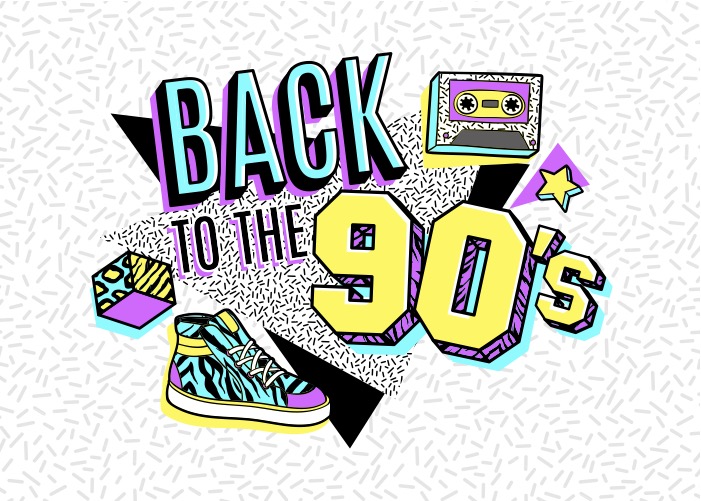the
Practical advice on building strategy, reflections on marketing trends and more.
Blog

Tapping into the power of the positive, familiar notions of the past to influence consumer behavior is nothing new. Yet, in recent years, brands have turned up the dial on nostalgia in advertising — in particular, references to the 90s and early 00s. Studies have shown that a strong desire to go back to a pre-pandemic, pre-inflation world played a big role in this. But even before 2020, an increased focus on millennial consumers (the “most nostalgic” generation) was the key reason brands started digging up references from the 90’s.
Back in 2017, McKinsey was reporting that “Millennials already spend $1 trillion, and that spending power will increase as their income reaches $8.3 trillion by 2025 (versus $6.4 trillion for Gen Xers and $1.1 trillion for baby boomers). The oldest millennials are now in their early 40s, and are likely serving the role as chief consumer in their household.
What is Nostalgia Marketing?
As Adroll defines it, “Nostalgia marketing is the strategy of tapping into positive, familiar concepts from previous decades to build trust for new ideas and reinvigorate modern campaigns.”
What better way to align with a consumer then to show your relation to something they already love or trust? Better yet, what if you can help them escape into “better days” through a product, service, experience — or even just a commercial — that sparks that familiar warmth. Nostalgia has regularly been shown to increase consumerism, even down to how much a person spends.
Why Are Millennials So Nostalgic?
First, let’s clear up the generational definitions. According to the Pew Research Center, “Anyone born between 1981 and 1996 is considered a Millennial, and anyone born from 1997 onward is part of a new generation.” Generation Z, or “Gen Z” as they are affectionately known, are those born between 1997-2012. (Check out their website for an infographic mapping the generations alive today).
While the 90’s marketing trend is largely focused on these millennial consumers between 41-24, Gen Z is also fascinated with all things 90s fashion and media, creating an extra boost for brands. (Some sources say that the reason Gen Z went all in on 90s and early 00s fashion trends, is a yearning to have experienced the social media-free, positive-economy, pre-pandemic adolescence that Gen X and millennials enjoyed — nostalgia for something that was never theirs.)
Still, millennials seem to take the cake as the most nostalgic generation. Research has shown that this generation is particularly drawn to ads that play on sentiments from their youth. As early as 2015, publications were commenting on Millenials’ yearning for the past, calling it then “early onset nostalgia.”
Like their younger Gen Z counterparts, millennials are motivated by escapism. Tanya Dua, for DigiDay, wrote “Blame the economy — and technology. Millennials are the first digital natives; the first people to have their lives instantly, and constantly, chronicled online. And even if they grew up during a great recession, they have been inundated with information.”
How Brands are Tapping into the 90s Nostalgia
When you start to look at what brands are jumping on the 90s nostalgia train, the formula seems clear: one part 90s pop culture + one part adulting.
Brands are combining things millennials used to enjoy, with things they have to do. Like buying mayo, or updating their insurance policy. In some cases, brands make references to the 90s in their commercials via products, celebrities or music. In other cases, they are resurrecting past products or introducing limited-edition versions (like the Crystal Pepsi reboot or the Motorola Razr)
Check out recent examples of brands using 90s nostalgia in recent years:
90s Nostalgia and the Millennial Consumer
November 2, 2022
Hi! I'm Colleen.
I’m a strategic marketing professional with over a decade of experience and a passion for mission-based brands.
full bio
founder
marketing consultant communication expert
founder | marketing consultant | communication expert
I’m also a trained writer who loves teaching people and organizations how to improve their communication to achieve their goals. Part marketing leader, part communications instructor, 100% focused on YOUR growth.